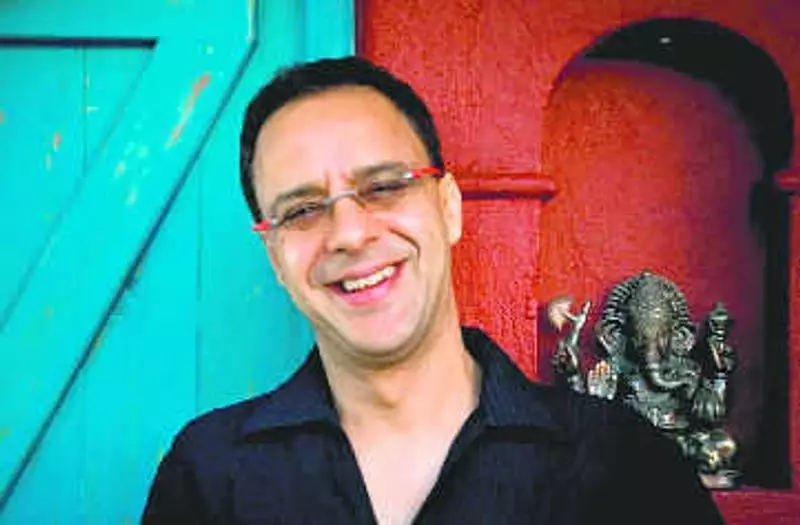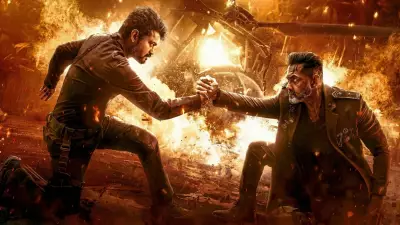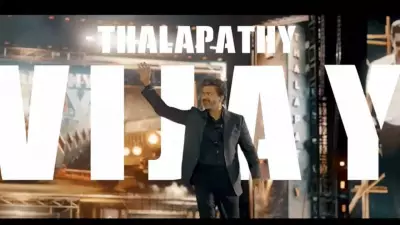
Renowned filmmaker Vidhu Vinod Chopra has opened up about his distinctive approach to cinema, revealing that his creative process is deeply intertwined with responding to the contemporary era he inhabits. The acclaimed director behind recent hits like 12th Fail and Shikara shared profound insights into his filmmaking journey and philosophical outlook.
The Creative Philosophy Behind Chopra's Cinema
In a recent candid discussion, Chopra articulated his fundamental filmmaking principle: "I react to the times I live in". This statement encapsulates his entire creative methodology, explaining how he selects projects and develops narratives that resonate with current social and cultural contexts. The filmmaker emphasized that his stories emerge organically from his engagement with the world around him rather than following predetermined formulas or commercial calculations.
Chopra's remarkable career trajectory demonstrates this philosophy in action. From his early documentary An Encounter with Faces, which earned an Academy Award nomination, to his recent blockbuster 12th Fail, each project represents his response to different phases of Indian society and his personal evolution as an artist.
From 12th Fail to Shikara: Responding to Contemporary India
The director's recent works perfectly illustrate his commitment to addressing current realities. 12th Fail, featuring Vikrant Massey, emerged as one of the most unexpected success stories of recent Indian cinema. The film's triumph surprised even its creator, demonstrating that authentic stories rooted in real Indian experiences can achieve both critical acclaim and commercial success.
Similarly, Shikara represented Chopra's personal response to the Kashmiri Pandit exodus, a subject close to his heart. Though the film faced mixed reactions, it underscored his commitment to telling stories that matter to him personally, regardless of potential controversy or commercial risk.
Chopra reflected on the unpredictable nature of film success, noting that while some projects like 12th Fail exceeded expectations, others that seemed guaranteed hits sometimes faltered. This uncertainty, he suggested, is what keeps the creative process exciting and genuine.
The Evolution of an Auteur: Four Decades of Indian Cinema
With a career spanning over four decades, Vidhu Vinod Chopra has witnessed and participated in significant transformations within Indian cinema. His journey includes notable films like Parinda, 1942: A Love Story, and the Munnabhai series, each marking different periods in both his artistic development and the evolution of Bollywood.
The filmmaker shared that his approach has remained consistent throughout these changes: creating cinema that speaks to the moment while maintaining artistic integrity. He emphasized the importance of staying true to one's creative instincts rather than chasing trends or attempting to replicate past successes.
Chopra's methodology involves deep immersion in his subjects, thorough research, and collaboration with talented actors and technicians who share his vision for authentic storytelling. This process ensures that each film genuinely reflects his perspective on the contemporary issues he chooses to explore.
As Indian cinema continues to evolve, with changing audience preferences and new distribution platforms emerging, Chopra's work demonstrates that substance-driven storytelling remains relevant and powerful. His recent success with 12th Fail particularly underscores how films addressing real Indian struggles and aspirations can create deep connections with viewers across demographics.
Looking forward, the filmmaker continues to develop projects that respond to our times, maintaining his position as one of Indian cinema's most thoughtful and distinctive voices. His career stands as testament to the enduring power of personal, socially engaged filmmaking in an industry often dominated by commercial considerations.





